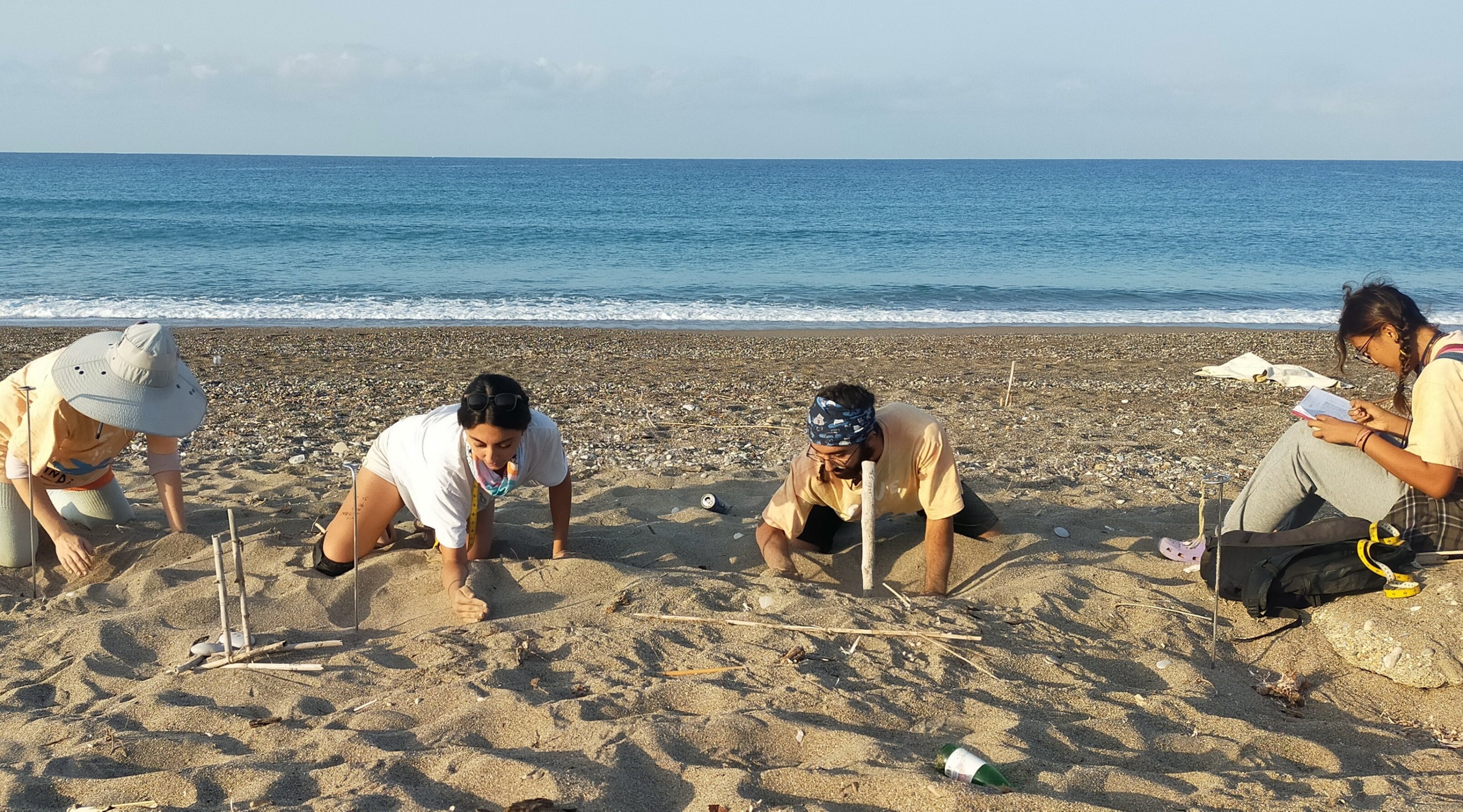© Turkuvaz Haberleşme ve Yayıncılık 2026
A total of 589,112 endangered sea turtle hatchlings, including 445,592 loggerheads and 143,520 green turtles, have emerged from their eggs and made their way to the sea on the 20 beaches along Türkiye’s southern coast this year, according to local experts.
Nearly all sea turtle species, which spend almost all of their lives in the sea and only come ashore between May and September to lay eggs, are in danger of extinction.
Conservation efforts are being carried out on 20 Turkish beaches where sea turtle eggs are found. Maintaining known nesting areas is crucial for the species’ survival, as they usually return to the same beach where they hatched to nest every year, using the Earth’s magnetic field to navigate back to the original spot.
Shorelines face many threats, such as environmental pollution, climate change, negative use of beaches, as well as sound and light pollution. The Ministry of Agriculture and Forestry’s General Directorate of Nature Conservation and National Parks (DKMP) carries out studies within the scope of the “Conventions on the Protection of Europe’s Wildlife and Habitats” and “Conventions on the Protection of the Marine Environment and Coastal Zones of the Mediterranean,” of which Türkiye is a party. The studies aim to learn more about endangered species and ways to protect them. The efforts of the ministry continue to pay off, ensuring that thousands of baby sea turtles can safely reach the sea every year.

In this context, the ministry has set aside designated nesting areas in 20 regions to protect sea turtles, their nests and the precious hatchlings. Fourteen of these areas are supervised by the DKMP, and the other areas, labeled as “Special Environmental Protection” areas, are protected by the Ministry of Environment, Urbanization and Climate Change.
Within the scope of conservation efforts, tourists, industrialists and local people are informed about how to use the beach and awareness-raising activities are carried out. Wire cages are also set up both under the sand and on the surface near the nests. Restrictions on light, excessive noise and visitors are also in place to ensure the safety of the incubating eggs.
In addition to conservation efforts, sea turtles are monitored via satellite transmitters to determine information such as feeding and migration patterns. Working on research and conservation efforts, several organizations along the Mediterranean coast also help treat sick or injured turtles, including the Turtle Research, Rescue and Rehabilitation Center. Injured turtles are brought to the centers for medical treatment and rehabilitation and, if possible, released back to the sea once they fully recover.
Last year, about 3,600 loggerhead nests were counted on the beaches in Türkiye’s Mediterranean coastal province of Antalya. Some 2,000 nests were found in the Belek district and 1,600 others in the Kızılıot district of Antalya, one of Europe’s largest Caretta caretta nesting areas.
